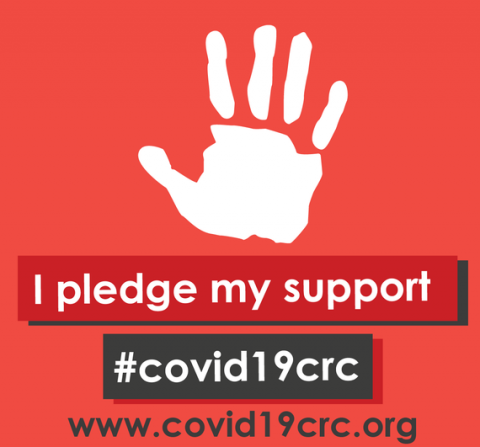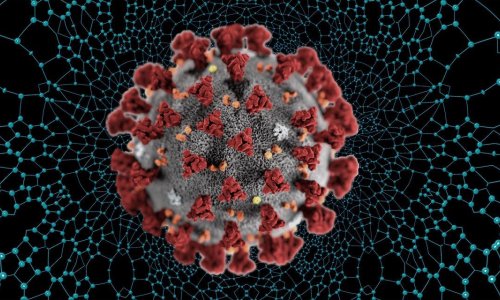News • Solidarity against the coronavirus
Coalition to fight COVID-19 in low-income countries
A group of scientists, physicians, funders, and policy makers from over 70 institutions from over 30 countries have launched an international coalition to respond to COVID-19 in resource-poor settings.

© COVIDcrc
The COVID-19 Clinical Research Coalition aims to accelerate desperately needed COVID-19 research in those areas where the virus could wreak havoc on already-fragile health systems and cause the greatest health impact on vulnerable populations.
In a Comment published in The Lancet, the members of the coalition argue that international research collaboration and coordination is needed urgently to support African, Latin American, Eastern European, and certain Asian countries to respond effectively to the worsening pandemic and speed up research adapted to resource-limited settings.
The coalition brings together an unprecedented array of health experts, including public-sector research institutes, ministries of health, academia, not-for-profit research and development organizations, NGOs, international organisations, and funders all committed to finding COVID-19 solutions for resource-poor settings.
Although the epicentre is today elsewhere, we must prepare now for the consequences of this pandemic in more resource-constrained settings or we stand to lose many more lives
Soumya Swaminathan
One important research response to COVID-19 has been launched already, the World Health Organization (WHO)-led SOLIDARITY trial, an unprecedented global effort. But the authors found that out of almost 600 COVID-19 clinical trials registered, very few trials are planned in resource-poor settings. The authors commit to sharing their technical expertise and clinical trial capability to accelerate COVID-19 research in these settings.
The scale of the challenge is clearly beyond the scope of any single organization. The coalition will facilitate a coordinated approach, so that all data from all regions can be collected in a similar fashion, pooled and shared in real-time. This will help countries and the WHO to make rapid evidence-based decisions on policies and practice.
Recommended article

News • Volunteering against the coronavirus
Scientists on Standby portal to support COVID-19 testing recruitment
Scientists on Standby has been rapidly conceptualised and launched in response to the COVID-19 crisis and in anticipation of the increasing pressure on UK diagnostic testing laboratories and facilities in the coming weeks and months. The portal enables scientists with relevant skills and experience to volunteer their time, expertise and support for COVID-19 screening and testing.
“We welcome the launch of this coalition, which takes advantage of existing multinational and multidisciplinary expertise in running clinical trials in resource poor settings, and will help the World Health Organization in its coordinating role in the global response to COVID-19,” said Dr Soumya Swaminathan, Chief Scientist, World Health Organization. “Although the epicentre is today elsewhere, we must prepare now for the consequences of this pandemic in more resource-constrained settings or we stand to lose many more lives.”
Members of the coalition call for specific commitments to ensure access, so that effective new treatments are made available as soon as possible in resource-poor settings and are affordable and readily accessible. So far more than 70 organizations have joined this coalition, with a call made to other organizations ready to contribute existing capacity to join. Please contact the COVID-19 Clinical Research Coalition: info@covid19crc.org
Source: Drugs for Neglected Diseases initiative (DNDi)
07.04.2020











